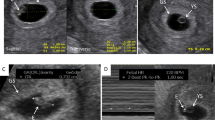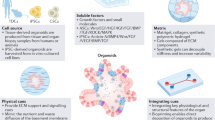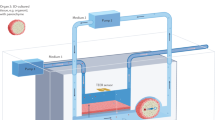Abstract
IN 1890 and 1897, Heape1 demonstrated the unimportance of somatic tissue to the germ cells by his successful transplantation of rabbit ova to a uterine foster mother. In 1934, Pincus and Enzmann2 obtained normal young by transplanting rabbit ova fertilized or cultured in vitro. Recently3, I reported normal development of ova stored at low temperature, and an optimal temperature for storage. I now have data on the probability of normal development after various treatments.
This is a preview of subscription content, access via your institution
Access options
Subscribe to this journal
Receive 51 print issues and online access
$199.00 per year
only $3.90 per issue
Buy this article
- Purchase on Springer Link
- Instant access to full article PDF
Prices may be subject to local taxes which are calculated during checkout
Similar content being viewed by others
References
Heape, W., Proc. Roy. Soc., 48, 457 (1890); 62, 178 (1897).
Pincus, G., and Enzmann, E. V., Proc. U.S. Nat. Acad. Sci., 20, 121 (1934).
Chang, M.-C., Nature, 159, 602 (1947).
Pincus, G., Anat. Rec., 77, 1 (1940).
Hammond, J., Z. für Pelztier- und Rauchwarenkunde, 3, 56 (1931).
Author information
Authors and Affiliations
Rights and permissions
About this article
Cite this article
CHANG, MC. Transplantation of Fertilized Rabbit Ova: the Effect on Viability of Age, in vitro Storage Period, and Storage Temperature. Nature 161, 978–979 (1948). https://doi.org/10.1038/161978a0
Issue Date:
DOI: https://doi.org/10.1038/161978a0
This article is cited by
-
Digynic triploidy after superovulation
Nature (1977)
Comments
By submitting a comment you agree to abide by our Terms and Community Guidelines. If you find something abusive or that does not comply with our terms or guidelines please flag it as inappropriate.



